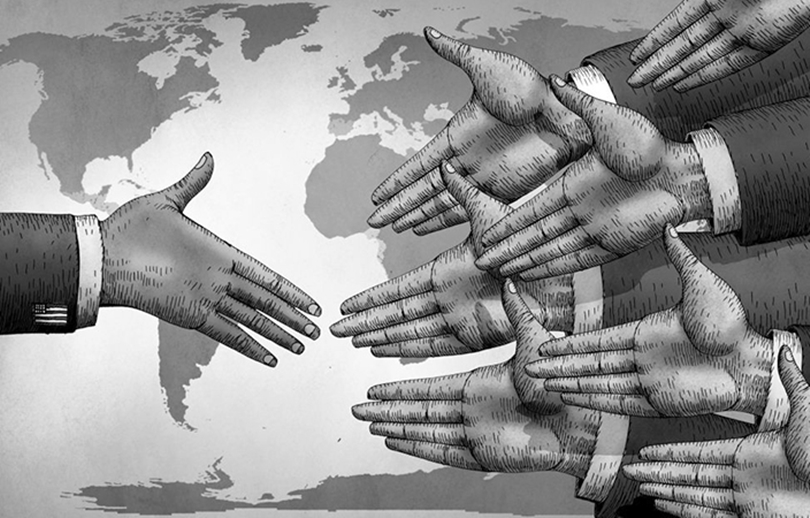Global trade growth has been in a slowdown for a decade. Contributing to the trend is a recent rise in protectionist policies, particularly in the United States.
On top of it, Brexit, no matter in what form it takes, is projected to decrease trade volumes and put strains on economies of both parties to this separation.
With these considerations in mind, the European Union should keep a clear head and continue its commitment to free trade in the negotiations with the United Kingdom.
Trade is essential for improving the lives of people. It does not only contribute to economic growth and job creation, but it also lifts people out of poverty, contributes to the rise in their incomes and improves their living standards.
What is trade’s magic? As people find it easier and cheaper to trade with one another, resources are much more efficiently allocated. The ensuing increase in productivity drives research and innovation, intensifies competition and competitiveness, facilitates that technology crosses borders, and delivers greater quantity and variety of goods, at lower prices, to consumers.
Crucially, to successfully compete on the global platform, the European Union (EU) needs to focus its efforts on creating more high skilled jobs and producing more tradable services.
While the EU-28 accounted for 15% of the world’s trade in goods, the value of its international trade in goods exceeded that of services by three times.
To continue to benefit from trade, the EU-27 should focus on making its market even more internationally competitive and attractive to foreign companies.
Given the benefits accruing from free trade for families, businesses, and workers, it is imperative that the European Union, which is the world’s largest trading bloc, continues its commitment to scaling back own trade barriers through diplomatic actions, dispute settlement in the World Trade Organization (WTO) and, most importantly, new trade agreements with countries outside of the region.
This way, it will become easier and cheaper for European companies of every size to produce, buy, and sell goods around the world, which will sooner or later lead to a higher disposable income per household in the EU.
Furthering trade liberalization can be achieved multilaterally, regionally, bilaterally, or even unilaterally. In this regard, the European Commission and EU member states are expected to rise above the vicious downward spiral of recently inflicted trade wars which are harming economies across the globe.
The recent shift in the United States (US) trade policy, which is under President Trump glorifying protectionism by imposing tariffs and making threats mainly against its largest trading partners, is for political or other reasons ignoring the existence of global value chains and the cost the economy pays when the administration goes down this road.
According to a Bruegel study, an escalation in protectionism worldwide would lead to a permanent loss of 3% of GDP for the US and 4% for the EU.
With this fact in mind, the European Commission should aim to reduce trade tensions while maintaining the focus of its policy actions on further trade liberalization and, therefore, becoming even more deeply integrated into global markets.
The Europeans have no say in the US matters. However, it is on Europeans’ shoulders to further free trade within EU institutions and policies.
In the last two years, the EU completed trade agreements with Japan, Singapore, Vietnam, and the Mercosur states (Argentina, Brazil, Paraguay, and Uruguay).
As these free trade agreements enhance economic cooperation and increase trade flows, higher productivity will facilitate a competitive edge to European companies and, at the same time, build a powerful boost to growth, higher incomes, and improved lives across the EU in the years to come.
On the other hand, these agreements will, unfortunately, only somewhat offset for the disruptions and the damage inflicted on complex supply and value chains caused by the ongoing trade wars and Brexit.
It is almost impossible for new trade agreements to compensate for strained trade relations with key trading partners, such as the US and the UK.
Thus, the European Union should keep pursuing free trade no matter how much some of its trading partners are imbued with protectionism.
The article was originally published at: https://www.brusselstimes.com/brussels-2/99209/european-school-to-close-for-two-days/
Continue exploring:
EU Road Transport Quotas Limiting Trade Expansion with Ukraine



